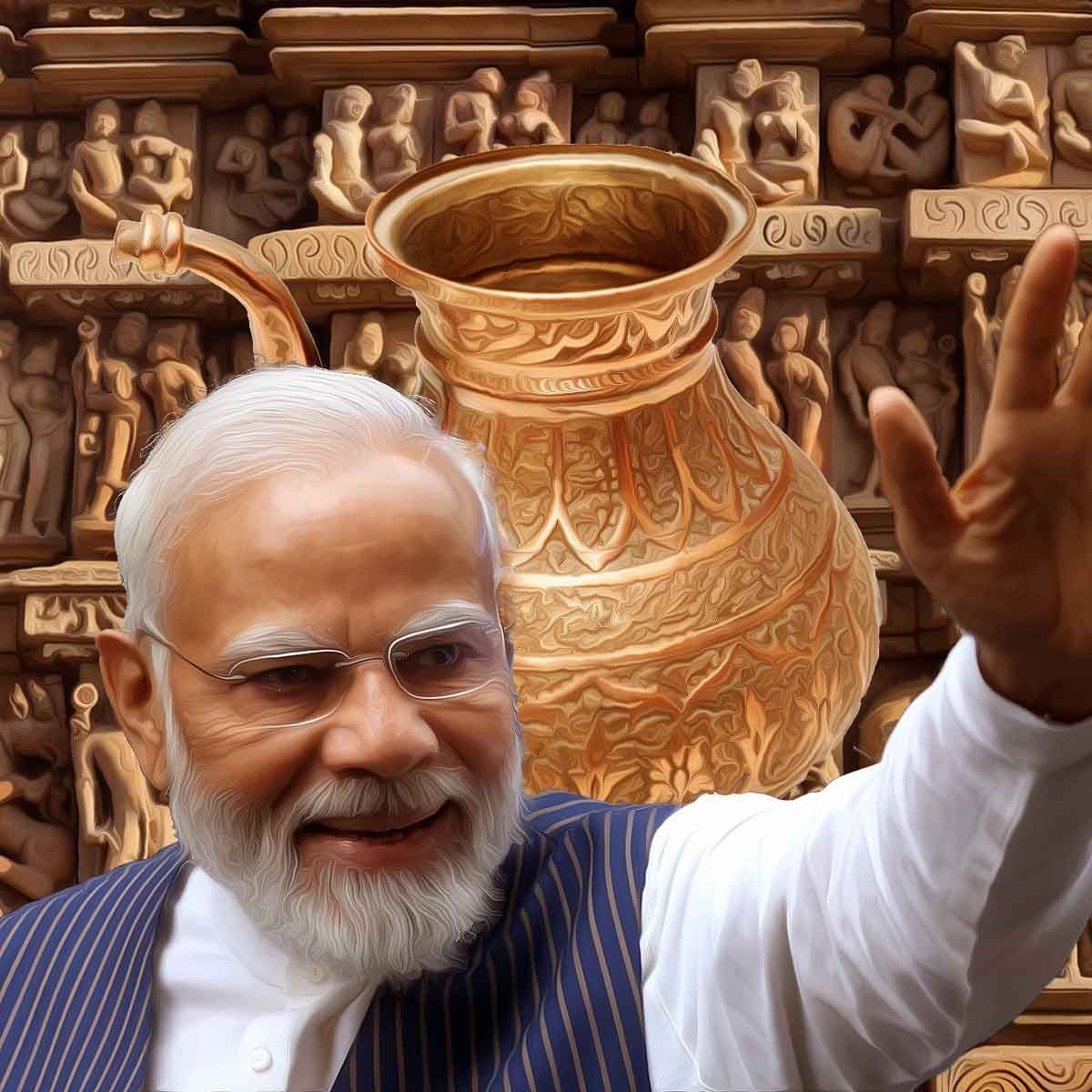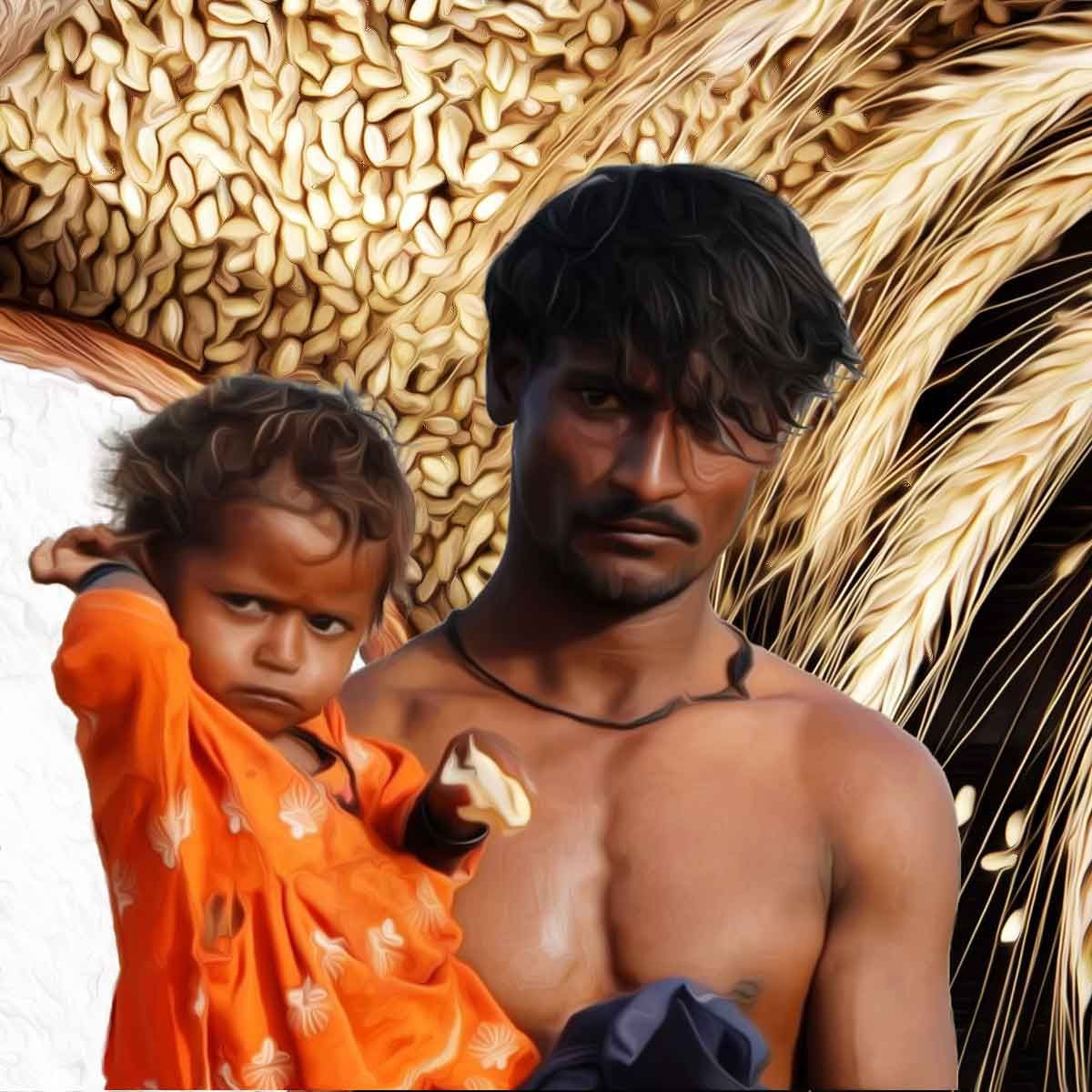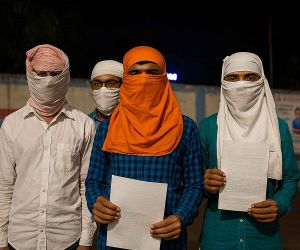MORE COVERAGE
Twitter Coverage
Satyaagrah
Written on
Satyaagrah
Written on
Satyaagrah
Written on
Satyaagrah
Written on
Satyaagrah
Written on
JOIN SATYAAGRAH SOCIAL MEDIA
"Bizarreness masqueraded as liberalism": Pakistan, a Self-proclaimed 'Riyasat-e-Medina' banned the Holi festival in universities across the country to tackle ‘erosion of Islamic identity’ after Hindu students at Quad-i-Azam University in celebrated Holi

In an act that has sent shockwaves through the international community, Pakistan, a nation that has self-proclaimed itself as the 'Riyasat-e-Medina', has once again demonstrated its deep-seated intolerance towards its religious minorities, particularly the Hindus. The incident in question unfolded on June 12, when a group of Hindu students at Quad-i-Azam University in Islamabad decided to celebrate Holi, a festival of colors that is a cornerstone of Hindu culture.
|
The celebration, however, was met with vehement outrage from the Islamist Pakistani majority, who found the public display of a Hindu festival intolerable.
In a move that has left many in disbelief, the Higher Education Commission (HEC) of Pakistan, on June 20, issued a notice that effectively banned the celebration of Holi in universities across the country. The HEC, in its notice, stated that such activities were a stark departure from Pakistan's sociocultural values and were contributing to the erosion of the country's Islamic identity. This decision has been met with widespread shock and disbelief, as it is seen as a direct attack on the country's religious minorities.
The notice, issued by HEC Executive Director Shaista Sohail, went on to claim that the "fervour" displayed in the Holi celebrations at the university had negatively impacted Pakistan's image. The notice read, "Unfortunately, it is sad to witness activities that portray a complete disconnect from our sociocultural values and an erosion of the country’s Islamic identity. One such instance that has caused concern was the fervour exhibited in marking the Hindu festival of Holi. This widely reported/publicized event from the platform of a university has caused concern and has disadvantageously affected the country’s image."
The commission further emphasized that while ethnic, cultural, and religious diversity does lead to an inclusive society, the manifestations of the same should not go 'overboard'. It also warned students to be wary of 'self-serving vested interests' who might use them for their own ends, without providing any further clarification on who these 'self-serving vested interests' might be.
|
In a display of blatant disregard for the Hindu festival, the commission termed the Holi celebrations as 'incompatible' with Pakistan’s societal values and identity. The HEC advised the Higher Education Institutes (HEIs) to distance themselves from such activities that are incompatible with the country's identity and societal values, while encouraging students and faculty to engage in academic pursuits, intellectual debates, and cognitive learning.
This decision comes in the wake of videos of Holi celebrations at Islamabad’s Quaid-i-Azam University going viral earlier this month. The videos showed students playing Holi with colors and rejoicing on the university campus, a sight that is now unlikely to be seen in the future.
In a country that is already grappling with issues of religious intolerance and discrimination, this move by the HEC has only served to further alienate its religious minorities. The ban on Holi celebrations in Pakistani universities is a stark reminder of the systemic oppression faced by religious minorities in Pakistan, a reality that is often overlooked by the international community. The incident raises serious questions about the state of religious freedom in Pakistan and the country's commitment to upholding the rights and dignity of its religious minorities.
|
Here are five earlier incidents of bans on Hindu festivals and atrocities on Hindus in Pakistan:
Basant Festival Ban: In a move that sparked widespread criticism, Pakistan's Punjab province imposed a "complete ban" on Basant, a seasonal festival celebrated by Hindus and Sikhs. The festival, which marks the arrival of spring, was deemed inappropriate and against the Islamic identity of Pakistan (source).
Forced Conversions and Atrocities: The province of Sindh in Pakistan has been a hotbed for forced conversions of Hindu girls. The annual report of the Human Rights Commission of Pakistan highlighted over 1,000 cases of forced conversions of Christian and Hindu girls in the province (source).
Persecution of Hindus: A report by Amnesty International highlighted the dire state of religious freedom for Hindus in Pakistan. Hindus, who constitute Pakistan's largest non-Muslim minority, have been subjected to extreme cruelty and horror, with the country being founded on the fundamentals of hate and bigotry towards them (source).
Atrocities in the First Two Months of 2023: In just the first two months of 2023, over 40 cases of atrocities against Hindus were reported in Pakistan. These included incidents of abduction, gang-rape, forced conversion, and mob lynching (source).
Institutionalized Persecution: Pakistani Hindus have been facing incessant attacks due to institutionalized persecution and systemic discrimination, tantamount to genocide. The atrocities include forced conversions, ethnic cleansing, rapes, abductions, and forced marriages (source).
|
"India and Pakistan: A Comparative Study of Cultural Diversity and Religious Tolerance"
India and Pakistan, two countries born from the same womb of British India, have charted drastically different paths when it comes to cultural diversity and religious tolerance. While India has embraced its multicultural ethos, allowing all religions to flourish, Pakistan has often been criticized for its treatment of religious minorities. This contrast is particularly evident when we look at how each country handles religious festivals and celebrations.
India: A Melting Pot of Cultures
India, often referred to as the 'land of diversity', is a country that is home to a myriad of cultures, religions, languages, and traditions. This diversity is not just a characteristic of India; it is the very essence that defines the country. India is a secular country where all religions are respected and have the freedom to celebrate their festivals openly.
From the colorful festival of Holi, the dazzling lights of Diwali, the joyous celebration of Eid, to the solemnity of Good Friday, every festival is celebrated with equal fervor and respect. The Indian government not only recognizes these festivals but also declares public holidays to ensure everyone can participate in the celebrations. This approach fosters a sense of unity in diversity, allowing different cultures and religions to coexist and thrive together, creating a rich tapestry of cultural heritage and religious tolerance.
Pakistan: A Contrast in Approach
On the other hand, Pakistan, a country that was carved out of India on the basis of religion, has often been in the news for its treatment of religious minorities. The recent ban on the celebration of the Hindu festival Holi in universities is a case in point. The Higher Education Commission of Pakistan issued a notice banning the celebration of Holi, terming it 'incompatible' with the country's Islamic identity. This move has been met with widespread criticism and is seen as a direct attack on the country's religious minorities.
Such incidents are not isolated. There have been numerous reports of forced conversions, attacks on religious minorities, and bans on cultural practices. These actions not only suppress the cultural identity of the minorities but also create a sense of fear and alienation among them.
|
Conclusion
The comparison between India and Pakistan in terms of cultural diversity and religious tolerance is a study in contrasts. While India celebrates its diversity and promotes an environment of inclusivity and mutual respect, Pakistan's approach towards its religious minorities raises serious questions about its commitment to cultural diversity and religious freedom.
In the end, it is the celebration of diversity and the respect for all religions that make a nation truly inclusive and tolerant. As the world becomes increasingly globalized, it is more important than ever for countries to embrace diversity and promote religious tolerance.
 Support Us
Support Us
Satyagraha was born from the heart of our land, with an undying aim to unveil the true essence of Bharat. It seeks to illuminate the hidden tales of our valiant freedom fighters and the rich chronicles that haven't yet sung their complete melody in the mainstream.
While platforms like NDTV and 'The Wire' effortlessly garner funds under the banner of safeguarding democracy, we at Satyagraha walk a different path. Our strength and resonance come from you. In this journey to weave a stronger Bharat, every little contribution amplifies our voice. Let's come together, contribute as you can, and champion the true spirit of our nation.
 |  |  |
| ICICI Bank of Satyaagrah | Razorpay Bank of Satyaagrah | PayPal Bank of Satyaagrah - For International Payments |
If all above doesn't work, then try the LINK below:
Please share the article on other platforms
DISCLAIMER: The author is solely responsible for the views expressed in this article. The author carries the responsibility for citing and/or licensing of images utilized within the text. The website also frequently uses non-commercial images for representational purposes only in line with the article. We are not responsible for the authenticity of such images. If some images have a copyright issue, we request the person/entity to contact us at satyaagrahindia@gmail.com and we will take the necessary actions to resolve the issue.
Related Articles
- Murder case of Hindu Youth Kishan Bharwad took a far more sinister turn when a Pakistani political party link in the case is revealed: Hindus protest in Gujarat erupts
- Pakistan: Mawali Zahid gave death threats to Hindu advocate Shankar Das, and attacked his house in Hyderabad: HC Bar association demanded strict action against the perpetrators
- Pakistani Media reporting abduction, forceful conversion as a consent marriage with the Muslim abductor in SIndh
- "Temple Falls, Hope Crumbles": Demolition of Hinglaj Mata Mandir in Pakistan is a grave assault on Hindu heritage, this act of intolerance strips away not just a temple, but a rich tapestry of history and faith, deeply wounding the minority community
- Muslim fundamentalists are not afraid of the Supreme Court of Pakistan and the government, demolished famous Hinglaj Mata Mandir in Pakistan: 11th attack in 22 months by religious fanatics
- Campus Front of India group carries out rally promoting violence against UP CM Yogi Adityanath
- "इल्म-ए-फ़ितरत": Muslim mob attacked Durga Puja pandals in Shyampur, Howrah, vandalizing idols, setting fires, and injuring devotees, 30 people arrested, Section 144 imposed, and internet services suspended to restore order and prevent further unrest
- 'Bharat has been guided by Hindu Dharma for several thousands of years', TN Governor RN Ravi's remarks on Santana Dharma irked Hindumisic cabal: Dravidianists and seculars displayed their Hindu hate by spewing anti-Hindu venom
- Pro-Pakistani and a Pro-Khalistani Canadian MP Jagmeet Singh is busy whitewashing anti-Hindu attacks committed by Muslim mobs during Ram Navami procession: Urges Canada to intervene to restore Human Rights
- "Whispers of death": In October 1990, 26 months before Karseva, Bangladeshi media spread a rumor that the disputed Babri structure had been demolished in India. The aftermath? 3,500 temples razed, and 2,400 Hindu women brutally raped
- "Modi hell-bent on re-creating the lost Hindu kingdom or Hindu Rashtra”: Propaganda of demonizing India over the fake narrative of ‘Muslim persecution’ set in motion again by International Toolkit
- Twitter rewards an Islamist org, set to be banned by India, with a verified blue tick: Here is what PFI has done in the past
- "Hanuman Chalisa will be chanted on double loudspeakers in front of the mosque if Govt don't take action about the loudspeakers in the mosques": Raj Thackeray addresses the annual Gudi Padwa gathering of his party
- Samajwadi Party workers raise anti-National, pro-Pakistan slogans during a rally in Kanpur, Uttar Pradesh
- Mohammedans trying to shield culprits of anti-Hindu atrocities by spreading paranoia over Bajrang Dal rally in Haryana’s ‘Mini Pakistan’

























